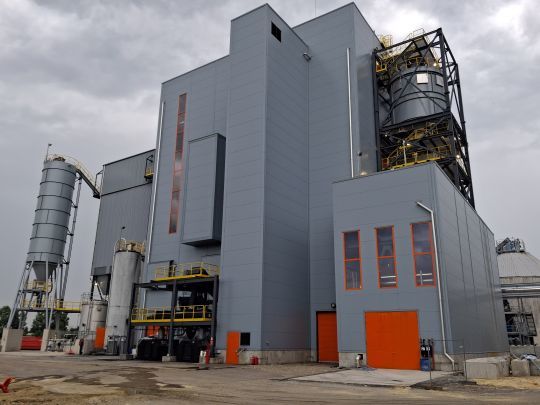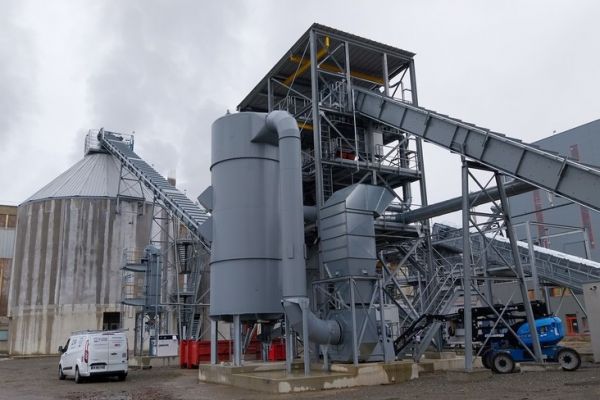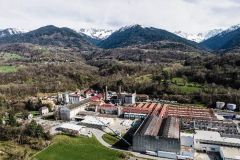In Rouen, the plume of steam has changed its nature. No more coal. For the past few days, a 56 MW biomass boiler has been supplying heat to the DS Smith paper mill in Saint-Étienne-du-Rouvray, Seine-Maritime. This industrial colossus, as tall as a ten-storey building, represents an investment of 90 million euros, 15 million of which was provided by Ademe.
The energy transition project, one of the most ambitious for a paper mill in Europe, will cover 80% of the heating needs of the site, which produces recycled corrugated base paper (PPO), and reduce its CO2 emissions by 99,000 tonnes a year. A saving equivalent to the energy consumption of 13,000 French households, or 40,000 fewer cars on the road for a year, according to DS Smith (which was acquired by American company International Paper in January 2025).
94,000 tonnes of wood transformed into steam
Supply is based on a 100% renewable fuel: 94,000 tonnes of biomass, 70% of which is industrial and municipal wood waste collected in the Île-de-France region, such as construction and furniture waste, with the remainder coming from Normandy and residues from the paper-making process. As a result, 70,000 tonnes of wood waste, usually landfilled each year, are recycled.

This project is part of the British group's climate roadmap. DS Smith is committed to reducing its absolute emissions (scopes 1, 2 and 3) by 46% by 2030, and to achieving carbon neutrality by 2050.
And a steam turbine to complete the installation
Engie Solutions is in charge of operating the plant, and plans to add a 10 MW steam turbine in the medium term. This development, still under study, would enable part of the heat produced to be converted into electricity.
Pierre Jegu, Director of DS Smith's Paper Cluster, comments: "This investment not only supports our sustainability goals, but also highlights the essential role of public-private partnerships in the transition to a circular, low-carbon economy." He emphasizes: "The well-established recycling infrastructure in France has made this possible, and we hope to replicate this approach elsewhere."











